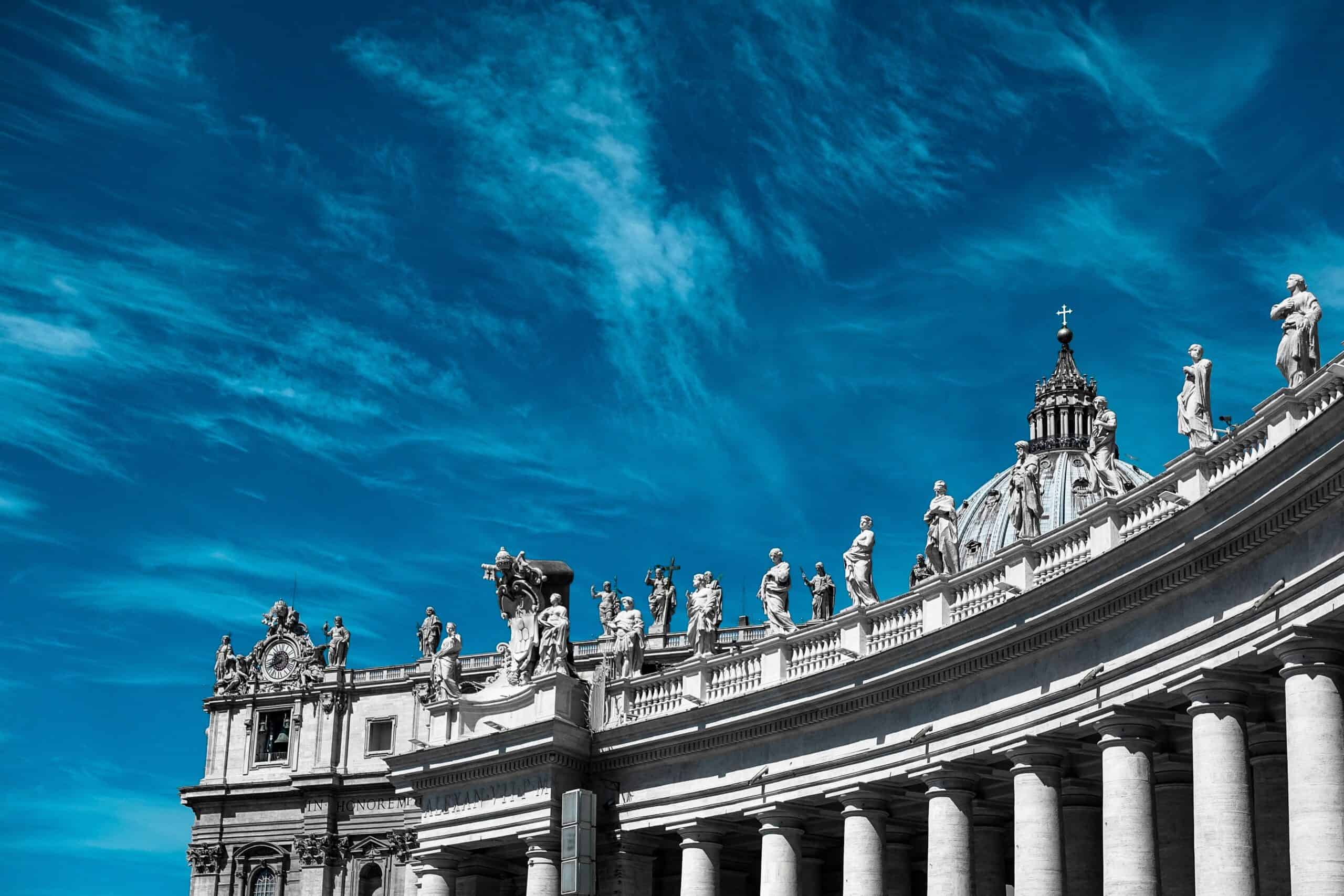If Laudato Si’ was a gentle and pastoral invitation to care for creation, Laudate Deum is a visceral, prophetic call to conversion. Eight years after Laudato Si’s initial publication, Pope Francis once again takes on the looming challenges of the climate crisis that have only worsened. Though this focus has drawn criticism from some Catholic commentators, it is hardly a secular document, but one that recognizes that Christians and the Church have a responsibility to the Earth and all of creation. Laudate Deum addresses people of goodwill, admonishing the human family that has neglected its relationships with creation, one another, and above all, God.
As an apostolic exhortation, it is both shorter and more direct than an encyclical, only about 7,000 words long. This introduction offers readers a guiding overview of Pope Francis’s renewed call to repentance and reparation.
The Global Climate Crisis
Pope Francis begins with the facts. The climate’s current situation is volatile and headed toward catastrophe, and Laudate Deum clearly identifies this reality. “Our responses have not been adequate, while the world in which we live is collapsing and may be nearing the breaking point,” he writes. Pointing to overwhelming scientific evidence that climate change is the result of human activity, Francis describes how the last 200 years of pollution and extraction have led the world to this crisis point. The disastrous situation is already apparent in deadly natural disasters, collapsing ecosystems, and rising temperatures worldwide. Still, many continue to deny the climate crisis or look the other way in favor of profit and productivity. In the face of that neglect, Pope Francis calls on all to remember the connectedness of everything and that salvation is communal.
Critique of the Technocratic Paradigm
Hard truths in hand, Pope Francis returns to an obstacle he first described in Laudato Si’, the technocratic paradigm. Technocracy, as the letter explains, is the belief that goodness and truth come directly from advances in technology and the growth of economic power. In the context of the climate crisis, it provides the illusion that it is possible to invent solutions without examining the underlying spiritual and economic problems that brought the world to this point. Expecting that simply moving from gas cars to electric cars or from beef cattle to lab-grown meat will be enough to resolve the crisis is a misguided assumption. Rather, Pope Francis recalls that the human person is also a part of creation, and cannot be separated from it, no matter how powerful scientific developments become. Those advancements tell us little about how they are actually to be used, and most often, the question is not “Should it be done?” but only “Is it possible?”
Weakness of International Politics
Governments do little to provide real guidance either, let alone constructive legislation. Pope Francis laments the lack of cooperation between countries to address the climate crisis, even though successful efforts on past international concerns offer a helpful model. The sort of collaboration that Laudate Deum envisions instead begins not in the centers of power but in the grassroots. “It is no longer helpful for us to support institutions in order to preserve the rights of the more powerful without caring for those of all,” the letter states explicitly. For too long, the margins have been ignored, the poor and exploited made miserable by the same filthy, rotten system destroying the Earth. Respecting the dignity of each person and the necessity of our common home requires the creation of new global mechanisms of discussion and decision-making.
Climate Conferences: Progress and Failures
The current global mechanisms for addressing the climate crisis are fundamentally toothless. Pope Francis briefly details the history of the COP meetings, which have been held yearly since 1995. Over the past thirty years, these international conferences have been a source of hope but have yet to result in action or progress. Scientific understanding of the climate crisis continues to grow, and the international accords seemingly reflect this, though in reality, they fall short of implementation. Too often, wealthy and powerful countries put their own interest ahead of the global common good and are not held accountable.
What to Expect from COP28 in Dubai?
The trend of making international promises only for nations to back on them, simply put, must come to an end. The crisis is now too dire to ignore the need for substantial change. Though new technology or scientific advances are important for the short term, the change Laudate Deum calls for is much more profound. Our problems are deeper than environmental concerns—they are social and political, concerning everyone. You don’t need to be a tree-hugger or a wildlife biologist to care about the future of the planet and our children. COP28 has the opportunity to be the conference that finally recognizes the real depth of the crisis that humanity is facing. It can respond and make real, meaningful strides toward climate justice.
Spiritual Motivations
In this concluding section, Pope Francis offers the image of a community on pilgrimage: United by God to each other and all of creation; we walk a journey of conversion that turns from the sinful degradation of the earth and towards faithfulness to God, the creator of all things. We cannot take God’s place. A Christian response to the climate crisis is not about recycling or buying an electric car. Repackaged consumerism will not be enough, though Laudate Deum clarifies that wealthy countries like the United States are obligated to renounce extractivism and overconsumption.
“‘Praise God’ is the title of this letter. For when human beings claim to take God’s place, they become their own worst enemies.” Pope Francis is inviting the whole church to a renewed vision of community and solidarity, where Catholics are willing to stand alongside their poor and exploited brothers and sisters as prophets of another better world. We are being called to collaborate with Christ’s liberating grace active in the world, alive in our hearts, our communities, and our Earth.


